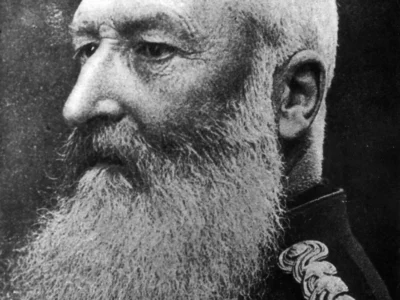Environmental Bills at the 10-yard Line
Now that the legislative session has wrapped, the ball is in the Governor’s hands. Here are some of the environmental bills he could sign by September 30.

The California legislative session wrapped up on Saturday, August 31st at midnight, with legislators working until the clock struck twelve. As usual, it was an exciting night to watch. Unlike most years, there seemed to be more of a rush at the end to reach agreement on some of the major issue areas, as well as a back-and-forth with the Governor about starting a special session focused on gas prices, and even more fighting and filibustering efforts than usual. Yes, legislative sessions can be a source of entertainment and intrigue between the high-tension debates, last minute challenges, and even the shouting and cursing. I highly encourage you to mark your calendars next year and tune in. Bills were discussed, debated, and deliberated right up until the deadline with legislators speaking in favor of, and in opposition to, many of the hotly contested topics we’ve heard about throughout the session. Procedurally, final amendments must be in print 72-hours before final votes, thus, as of Wednesday night August 28th, the final bill text was available for review.
If you recall from my earlier post, at the time of the bill crossover from their house of origin, there were still 1,570 bills in play out of the initial 2,124 that had been introduced, leaving 931 assembly bills and 639 senate bills. The legislators have been engaging in a literal sprint since the end of the summer recess on August 5th to get through the 1,570 bills by August 31st close of session, as this is the end of the two-year session. Sessions in California are two years, always beginning in odd years and ending in even years to coincide with elections and the new legislators it brings. As is typically the case, many of the bills died in the appropriations committee on the suspense file, but hundreds remained for voting in the last week of session.
In this post, I focus on some of the most interesting and innovative environmental bills we’ve been tracking at the UCLA Emmett Institute. Here are the ones still in play that made it over the many hurdles in the legislative process to reach the Governor’s desk.
Senate Bills:
Of the senate bills I discussed in my halftime report at the crossover, Senator Caroline Menjivar’s SB 1193 to phase out the sale of leaded airplane fuel is moving forward, as is SB 1420 (Senator Anna Caballero) to streamline hydrogen production in the state, and SB 960, authored by Senator Scott Wiener, requiring state highway projects overseen by Caltrans to include pedestrian, bicycling, and transit facilities when feasible.
In addition to the ones discussed above, multiple environmental bills related to addressing our state’s climate goals were passed. In furtherance of the state’s goal to achieve net zero emissions by 2045, Senator Dave Min’s SB 1221 would facilitate a number of pilot projects—up to 30 by 2030—to end gas service to individual neighborhoods as they electrify. The gas companies will need to assess future line replacement projects and report the results of that assessment to the PUC by mid-2025. The PUC uses those reports to designate “priority neighborhood decarbonization zones” in which pilot projects can be demonstrated. This was one of the California Environmental Voters priority bills for 2024—if signed into law, this bill could help the state take important steps forward in decarbonizing existing communities.
Another bill aligned with addressing our climate goals is SB 615, authored by Senator Ben Allen—and which students in our California Environmental Legislation Clinic were fortunate to be able to work on last year—would create an extended producer responsibility (EPR) program for EV batteries. Extended producer responsibility programs require a product’s manufacturer to take responsibility for managing the waste generated by a product at the end of its usable life, and in this case, properly managing EV batteries once they leave their initial application is key as the state moves towards its goal for all new vehicle sales to be EVs by 2035. EV batteries contain critical minerals that are costly—to communities, the environment, and economically—to produce, and batteries can be repurposed to bolster the stability of our electrical grid once they’re no longer being used in cars. The bill would bring the state closer to creating a “circular economy” for EV batteries, establishing a hierarchy that calls for the reuse, repurposing, and remanufacturing of EV batteries to serve in other beneficial applications before their component parts are eventually recycled. The California Department of Toxic Substances control would need to adopt regulations implementing the bill by 2028.
Finally, following last year’s passage of the landmark Climate Corporate Data Accountability Act, Senators Scott Wiener and Henry Stern co-authored SB 219 to assist with that legislation’s implementation. The bill extends the deadline that the California Air Resources Board (CARB) has to complete the rulemaking process while leaving intact the timeline for the corporate disclosures. This bill came on the heels of months of speculation about delays to the implementation of SB 253 and SB 261, last year’s climate disclosure bills—a debate that played out first in the budget process and continued through the end of session. In the end, the state appears poised to implement the two laws, but they remain embattled brought by the U.S. Chamber of Commerce and others.
Assembly Bills:
Many of the assembly bills I mentioned in my halftime report have made their way out of both houses. This includes Assemblymember Laura Friedman’s AB 1963, which would prohibit paraquat dichloride and Assemblymember Gail Pellerin’s AB 2513, which would require new gas stoves to come with warning labels notifying consumers of their health risks (AB 2513 had a bumpy road to passage involving a reconsideration motion in the Senate, but ultimately made it through with some amendments). Despite opposition describing this as reigniting the war on gas stoves, the bill did advance along party lines this session.
The Legislature also passed the Local Environmental Choice and Safety Act (AB3233), authored by Assemblymember Dawn Addis, which would give local governments the authority to ban some oil and gas operations and extraction methods in their jurisdictions. As has been mentioned in previous posts, this bill addresses a state Supreme Court decision that held a local ordinance banning oil and gas production was preempted by state law because it regulated production methods. AB 3233 clarifies that local governments do have the power to limit or ban oil and gas operations within their jurisdictions, even when those limitations or prohibitions are related to the methods and location of the operations. There was much debate during session about the tension between local and state control, and in this bill, local control ultimately won out. But the vote was a nailbiter: After initially failing a Senate floor vote, the bill passed off the Senate floor after a reconsideration motion and squeaked by with 43 votes on concurrence in the Assembly, with only 11 minutes left in the Legislative session. The two additional oil well cleanup bills mentioned in the halftime report have also advanced to the Governor’s desk. Assemblymember Gregg Hart’s AB1866 to clean up idle oil wells and Assemblymember Isaac Bryan’s AB2716, the Low-Producing Oil Well Accountability Act. All three bills were initially introduced in response to efforts to repeal SB 1137, which created a 3200-foot health protection zone around oil and gas production facilities in an effort to protect nearby communities. Proponents of that referendum ultimately pulled it from the November ballot, but changes were made to the three bills in exchange: Notably, AB 2716, which initially would have required low-producing wells across the state to be accounted for and plugged within 2 years was geographically limited and now applies only to the Inglewood Oil Field that sits within Assemblymember Bryan’s own district. AB2716, the Low-Producing Oil Well Accountability Act. All three bills were initially introduced in response to efforts to repeal SB 1137, which created a 3200-foot health protection zone around oil and gas production facilities in an effort to protect nearby communities. Proponents of that referendum ultimately pulled it from the November ballot, but changes were made to the three bills in exchange: Notably, AB 2716, which initially would have required low-producing wells across the state to be accounted for and plugged within 2 years was geographically limited and now applies only to the Inglewood Oil Field that sits within Assemblymember Bryan’s own district.
Another bill created to address contaminants that affect human health, and particularly those in environmentally burdened frontline communities, is Assemblymember Mia Bonta’s AB 2851. This would require metal shredding facilities to implement fence-line hazardous waste constituent monitoring requirements.
Finally, in our ongoing national and state efforts to remove PFAS from our bodies, our environment, and our water systems, bills that require removal of PFAS from our consumer products have been critical for curtailing these forever chemicals. Assemblymember Diane Papan, Chair of the Assembly Water, Parks, and Wildlife Committee, drafted AB 2515. Known as The T.A.M.P.O.N. Act, this bill would prohibit the manufacture, distribution, or sale in California of any menstrual products that contain regulated PFAS. It is worth noting that this bill received no noes, signifying the bipartisan support to get PFAS out of our personal care products.
What’s Next?
The Governor has 30 days to review bills and decide what should become law. Which bills are you rooting for? Which bills do you think should be left on the field? Are there other environmental bills you want to hear about? Let me know your thoughts in the comments. I’ll be back with you next month for a full rundown. Until then, feel free to reach out to me at ashjian@law.ucla.edu. Thanks for reading, and happy start of the actual football season.
Reader Comments
One Reply to “Environmental Bills at the 10-yard Line”
Comments are closed.







This is a major stride in the fight for environmental Justice and I wholeheartedly support.